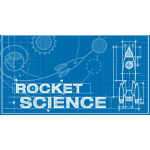
Contrary to what seems to be a common belief these days, we do actually have an entire discipline for evaluating “ways of knowing”.
It’s called “epistemology”.
And it distinguishes between “belief” and “knowledge”.
“Knowledge” is “justified true belief”.
Meaning a belief for which we have a reason and evidence.
And science is the reliable process by which we find out whether beliefs are true, and evaluate the evidence and reasons for their truth.
Over the thousands of years of history we have tried many other ways, like “what does it say in the Bible?” and “did the woman accused of witchcraft float?”
It turns out that the Bible says some things that are demonstrably not true; it also turns out that sometimes the witch floats, sometimes she doesn’t.
These ways don’t produce knowledge, because they are not reliable.
Science is, though. By testing repeatedly under carefully controlled conditions we can reliably identify which beliefs are false, which distinguishes them from those that are provisionally true.
They are only provisionally true, of course, until they’re proven to be false; by science.
(Having a reliable method of evaluating the reasons and evidence also lets us have some new categories, like “probably false” and “possibly true”; truth in the real world is complicated and messy.)
And there are a lot of things that we know now because we have carefully tested them over and over again.
For example: vaccines don’t cause autism; prayers don’t heal heart attack patients.
Oh, and humans almost certainly did evolve from earlier animal forms over millions (billions) of years via a process called “natural selection”.
These are “knowledge”, or “justified true beliefs”.
And to say otherwise, and that you “know” because you have “another way of knowing”, just makes you look like an idiot.
So stop doing that.
And then go find a nearby community college; they’re great folks and will be happy to help you learn more about how this stuff works.
- AIpocalypse: Generative AI Cannot Be Reliable - 2026-02-13
- C’mon Democrats: Zero Votes For Fascism - 2026-02-11
- Digital Sovereignty: Not Just For Countries - 2026-02-09
- AIpocalypse: Generative AI Cannot Be Reliable
- You Should Read This: We Should Talk About The Morality of Political Violence
- “History And Tradition”: If We’re Changing Legal Interpretation, Let’s Not Make It Worse
- The Asshole Window: A New Theory Of Societal Collapse
- Good One, Gavin: Now Apologize For Making It Necessary
